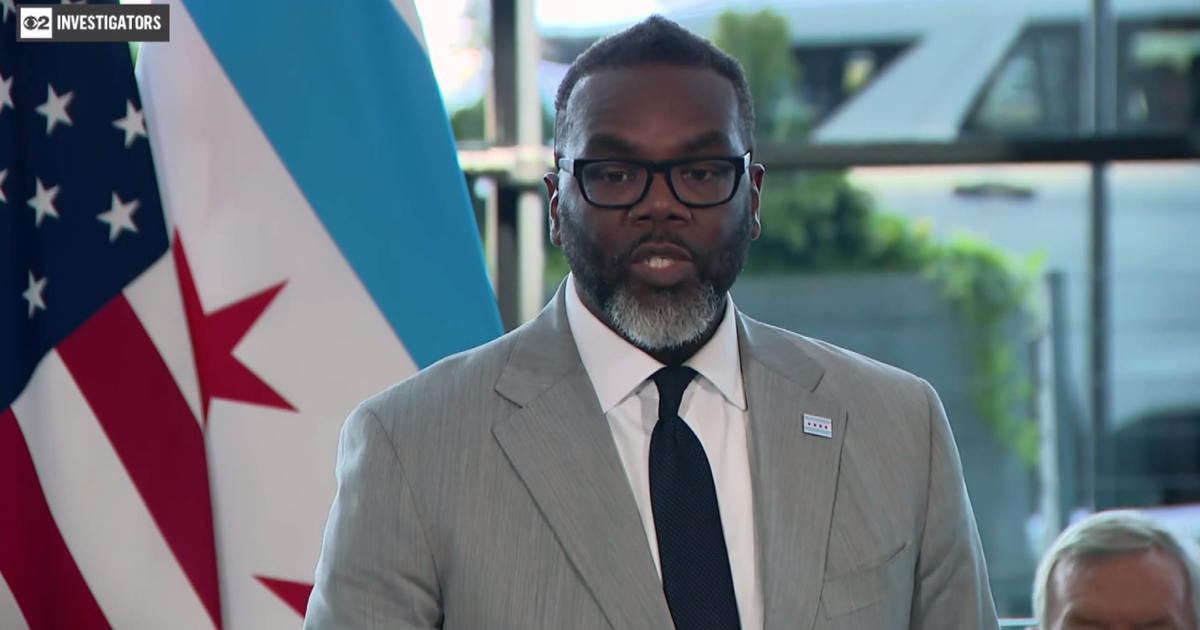Chicago-Area Doctor Helps 3 Runners Break Records By Using Math
CHICAGO (CBS) -- Chicago's running season opens Sunday with the Shamrock Shuffle and unofficially ends in October with the Chicago Marathon.
In between, in Italy, the year's most interesting race will take place.
NIKE, three runners from Africa, and a Chicago-area doctor are combining forces to try and run a full marathon in under two hours.
That means they need to go nearly three-minutes faster than anyone has before in an event that usually sees records broken by mere seconds.
"As a doctor I have seen extraordinary things that shouldn't be possible happen before," said Dr. Philip Skiba, Advocate Health Care Sports Medicine Director. "And that is what I try to remind my colleagues of. This is really hard, what we are trying to do is practically impossible, but I've seen the practically impossible happen more times in my career than I would like to admit."
The runners are the best in the world; the technology is the most advanced yet; the course is specially designed; and the training regimen is cutting edge.
Dr. Skiba has created training algorithms that help the athletes workout in peak waves, at peak times. NIKE is fitting them with special shoes, contouring to their feet to help absorb shock. The attempt will happen on an auto-racing track, not a regular marathon course so athletes do not have to slow down to make hard turns.
When will they do it?
"I can't say," Dr. Skiba said.
Climatologist have picked out optimal weather conditions and when the time is right, the three athletes will give history a go. WBBM's Rick Gregg has more.
At the rate humans are developing, scientists believe the task of running a full marathon in under two hours, can be done - but not until year 2075.
But a Chicago-area doctor thinks otherwise. Using high-level math to sketch out a training plan, Dr. Skiba is helping three runners try to make history happen sooner.
"Most athletes succeed in spite of their training, not because of it," Dr. Skiba said.
Dr. Skiba specializes in using algorithms and data to help the best get even better.
"You apply a known stimulus to the athlete – I am going to make you run this much, in however many days – then, I monitor changes in your physiology and then I develop an equation that describes that," Dr. Skiba said. "Once I have that, it is no different than an engineer building an airplane."
Just like you wouldn't use parts from a cargo plane to fix a helicopter, you wouldn't give a quarterback the same training regime as a point guard. But both aircraft fly, and both athletes are humans, so there are some similarities.
"If I give you two aspirin, I fix your headache; if I give you 10, I give you a stomachache; if I give you 50, I kill you," Dr. Skiba said. "The body receives exercise as though it is a dose of medicine, and the response is just the same. You use the same types of equations, with some refinements that I have put together."
Those refinements are what sets Dr. Skiba's patients apart, including a trio of distance runners who will try to run a marathon in under two hours later this year.
WBBM's Rick Gregg spoke to Dr. Skiba on how his work applies to athletes of all abilities, in all sports.
Sometimes it is not what you do, it is what you don't do that helps you get better, Dr. Skiba said.
"You don't get stronger by training, you get stronger by recovering from training," Dr. Skiba said. "If you never take the time it takes for your body to bounce back, and step to that next level, you are never going to get any better."
Dr. Skiba works with athletes of all stripes, from world-class marathoners and triathletes to high school quarterbacks and he has an ironclad rule:
"Every athlete that I work with gets one day almost completely off," Dr. Skiba said.
But it is good advice for the average Joe, too.
"You really need to listen to your body – so when you wake up and you are a little sore, your body is telling you something, you don't have it today," Dr. Skiba said. "Go do something real easy. And in contrast, you should wake up feeling pretty good – this is a day, I can hit it a little bit harder."
So, it is okay to push yourself a little bit, but you will not set a PR without some R&R.
Athletes cannot speed up without slowing down. Dr. Skiba gave WBBM some training tips for pros and Joes alike.
"You know it's not crazy," said Dr. Philip Skiba. "We've known for almost 20 years that is it physiology possible, but the big question is – why hasn't it been done?"
Our work with the Nike Breaking 2 project is figuring out what those barriers are and breaking them.
To find our what those barriers are and for the full interview with WBBM's Rick Gregg and Advocate Health Care Sports Medicine Director Dr. Philip Skiba about an upcoming attempt at running a marathon in under two hours, listen below.
They also discuss how advanced math is helping athletes train more efficiently, and how everyday runners can improve their performance.



